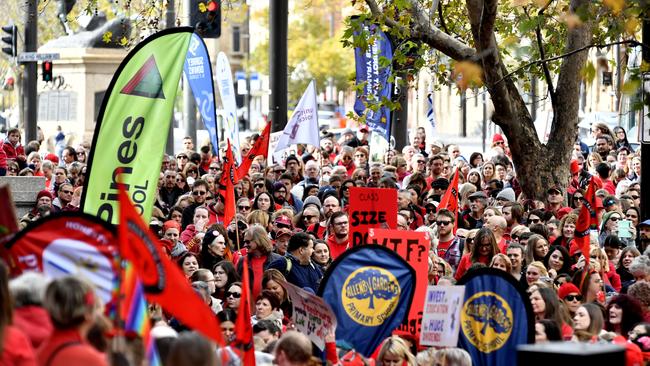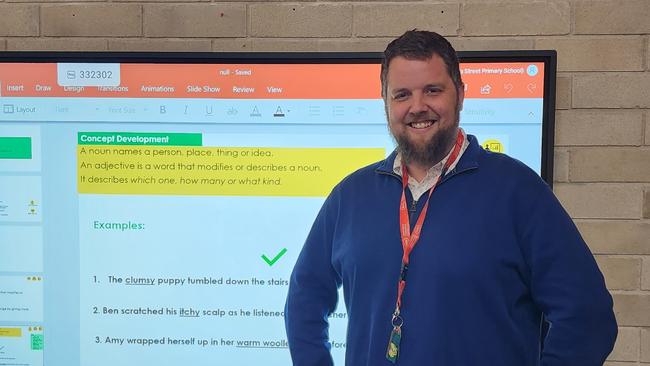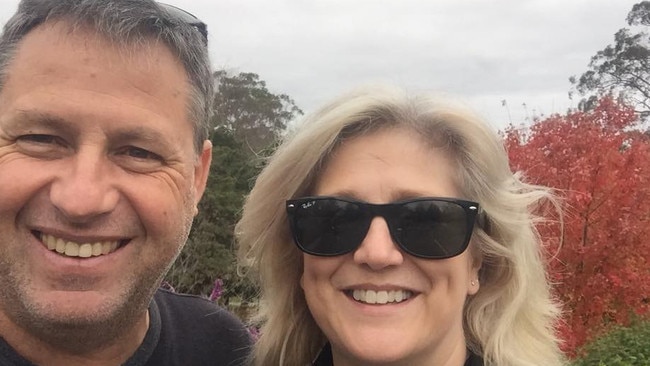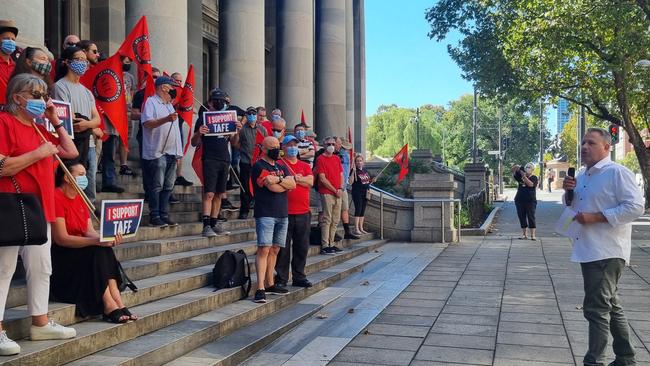SA teachers strike threat ‘timed to coincide with Australian Education Union leadership ballot’, insiders claim
A sudden teacher strike threat – which would affect tens of thousands of SA families – has been carefully timed with a union election, insiders claim.

Education
Don't miss out on the headlines from Education. Followed categories will be added to My News.
Snap threats of a teacher strike that would hit tens of thousands of South Australian families were timed to coincide with a union leadership election, insiders claim.
In a surprise move, Australian Education Union SA branch executives last week voted to escalate their industrial row with the state government after almost eight months of talks.
Union whistleblowers, senior government sources and a contender vying for union presidency have questioned the decision to pursue a full-day strike.
The AEU is this week asking 12,153 members to vote in favour of the strike that would happen on September 1 – the same day union executive nominations close – unless “an acceptable offer” is made by next Monday.
Strike chaos would affect 172,633 public school pupils at 893 high, primary and preschool sites.
Mt Gambier-based Matt Key, 37, Mulga St Primary School’s deputy principal who is seeking the AEU presidency, questioned the “very coincidental” timing.
He said as a current teacher he had a better understanding of what workers at the coalface were up against than other candidates.
“The sudden escalation in the level of action is not consistent with what we’ve been doing in the past,” Mr Key said.
“Leadership of the union has lost perspective.”

Senior government sources further questioned the timing of the strike threat and said there were other ways to take action without affecting children.
Union demands, which its executive approved, include pay increases for public educators of between 5.5 and 8.6 per cent per year until 2026 and more than $1bn in extra classroom support to ease workload pressures and manage children with complex needs.
It also wants a 20 per cent drop in face-to-face teaching time.

Government negotiators have told the union to narrow its scope for its three-year demand.
AEU president Andrew Gohl rejected claims on the timing of a planned strike but apologised for “short-term inconvenience” for industrial action to address an immediate teacher shortage crisis, excessive workloads and lack of classroom help while “sharpening” ministers’ minds.
Denying he was motivated by his own push for re-election Mr Gohl, a former high school teacher who has been president twice, declined to say if he was seeking re-election.
He said government offers were “contemptuous” and given how long negotiations had already taken “to say things have escalated quickly is a nonsense”.
Mr Gohl said his “first, primary and whole concern” were teacher wellbeing and adequate student supports while the AEU was “trying to improve” conditions.
“What I would urge parents to do is to understand this is of benefit to their child’s learning,” he said.

Refusing to be drawn on internal union decisions, Education Minister Blair Boyer said: “I’d urge the AEU to continue to negotiate so an agreement can be reached as soon as possible without impacting students and families.”
Opposition spokesman John Gardner added: “Strikes are bad for students, families, and school communities.”





